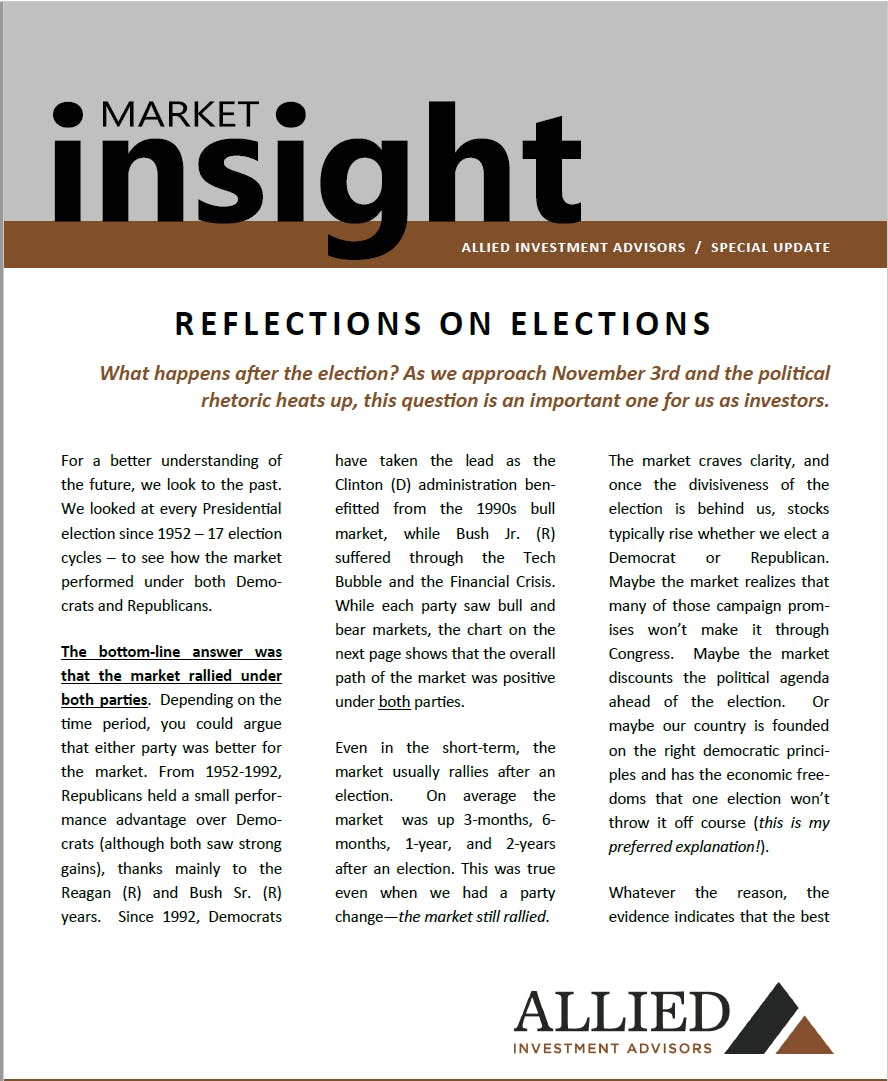Special Update: Reflections on Elections
October 2, 2020
What happens after the election? As we approach November 3rd and the political rhetoric heats up, this question is an important one for us as investors.
For a better understanding of the future, we look to the past. We looked at every Presidential election since 1952 – 17 election cycles – to see how the market performed under both Democrats and Republicans.
The bottom-line answer was that the market rallied under both parties. Depending on the time period, you could argue that either party was better for the market. From 1952-1992, Republicans held a small performance advantage over Democrats (although both saw strong gains), thanks mainly to the Reagan (R) and Bush Sr. (R) years. Since 1992, Democrats have taken the lead as the Clinton (D) administration benefitted from the 1990s bull market, while Bush Jr. (R) suffered through the Tech Bubble and the Financial Crisis. While each party saw bull and bear markets, the chart below shows that the overall path of the market was positive under both parties.
Even in the short-term, the market usually rallies after an election. On average the market was up 3-months, 6-months, 1-year, and 2-years after an election. This was true even when we had a party change—the market still rallied.
The market craves clarity, and once the divisiveness of the election is behind us, stocks typically rise whether we elect a Democrat or Republican. Maybe the market realizes that many of those campaign promises won’t make it through Congress. Maybe the market discounts the political agenda ahead of the election. Or maybe our country is founded on the right democratic principles and has the economic freedoms that one election won’t throw it off course (this is my preferred explanation!).

Whatever the reason, the evidence indicates that the best course of action through an election cycle is to stay the course. Don’t fall into the trap of trying to time the market based on the presidential results. Instead, stick to your investing goals and focus on the long-term. While the investing ride can be bumpy at times, investors who ignore the market’s volatility have historically been rewarded.
Two of the most successful investors of our time are Warren Buffet (a noted Democrat) and his business partner Charlie Munger (a self-proclaimed Republican). Together they’ve built a track record at Berkshire Hathaway that is second to none – compounding the company’s share price at an annualized 20.3% for 54 years (that’s an overall gain of 2,744,062%!). Despite their political differences, Buffet and Munger have kept their focus on what truly matters in investing: a long-term outlook and solid fundamentals.
If you have any questions about the market or your account, please reach out to any one of our team members at (406) 839-2037.

